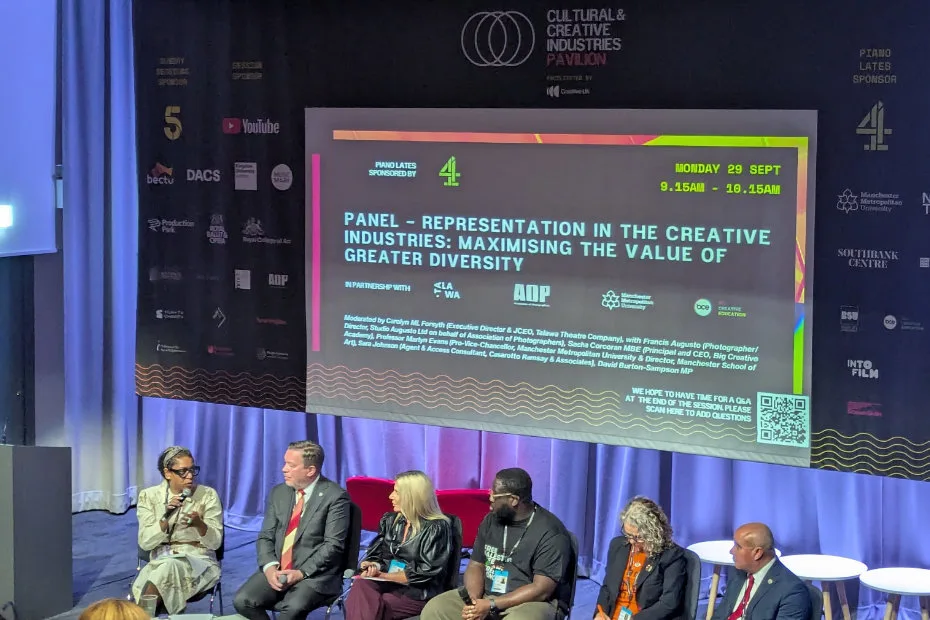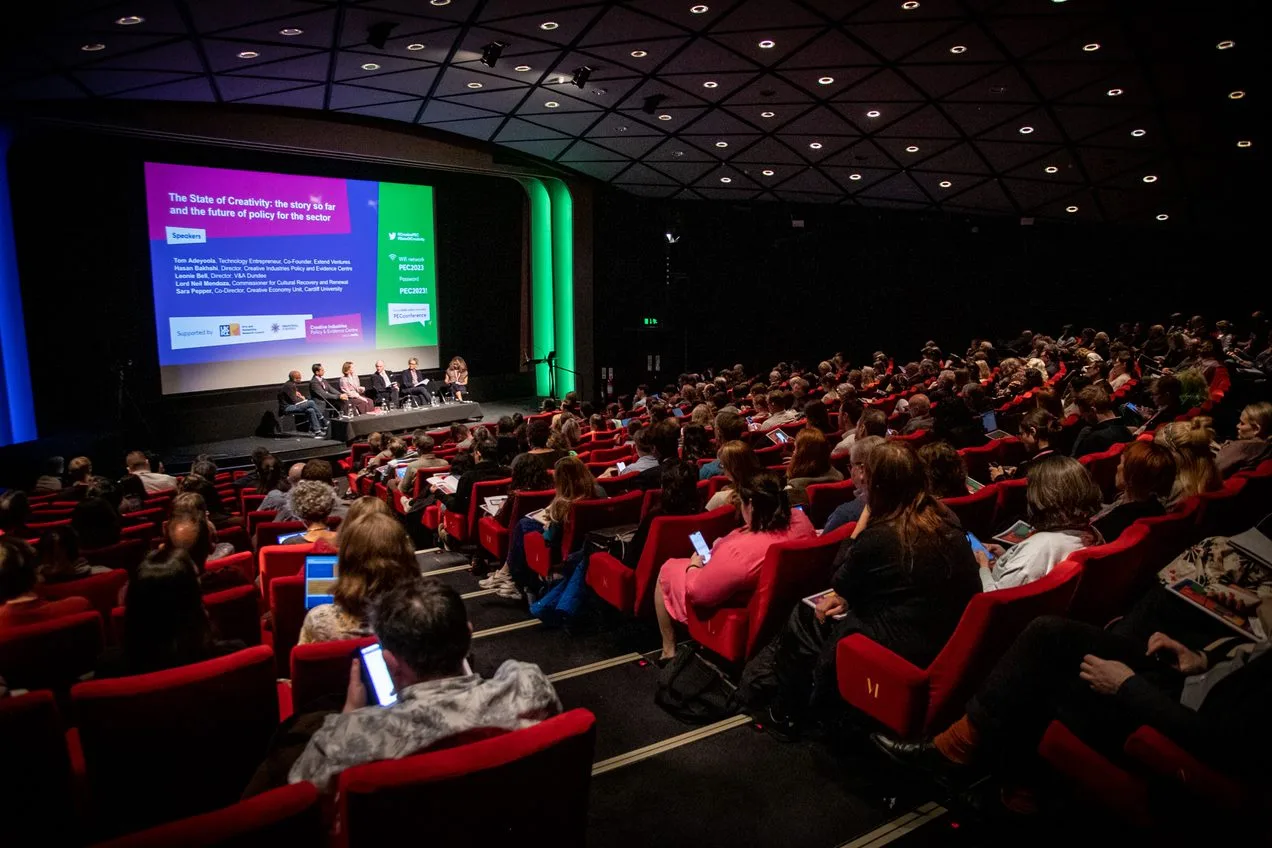We got there: a deal better than no-deal was eventually found. The two parties started with different priorities: the UK wanting more sovereignty and the EU wanting to preserve the Single Market. It seems that both got what they wanted whilst trying to minimise the greater short-term economic damage of a no-deal.
Several think tanks have issued their initial assessments for the UK economy (see examples from Institute for Government and UK in a Changing Europe), but the implications of the agreed deal will only be fully understood as citizens and businesses slowly adjust to it. Similarly, in-depth assessment of all the implications for the creative industries and their sub-sectors will take time. In this blog, I offer, instead, some thoughts on high-level points, with two questions in mind: what’s in it for the UK’s creative industries and what does the UK’s future relationship with the EU hold in store for them?
A new relationship against a new benchmark
The Trade and Cooperation Agreement(TCA) marks a fundamental change in the UK’s economic and political relationship with the EU. When it comes to trade, the main success has been to avoid the much-feared no-deal scenario of trade tariffs and quotas for goods. According to the latest data from DCMS, in the creative industries these tariffs and quotas would have affected 19.5% of total creative goods that are exported to the EU and 47.8% of creative goods that are imported. Leaving the customs unions and the Single Market still means that UK and EU goods face higher trade frictions, however, in the form of non-tariff and behind the border barriers such as red tape, regulatory compliance, health and safety requirements, customs procedures, and rules of origin.
Trading services is, in general, more complex than trading goods (see my recent literature review for the PEC for why this is the case). International service provision takes different modes as outlined in the General Agreement on Trade in Services (cross-border supply, consumption abroad, national presence and presence of natural persons) and services end up facing several types of barrier. We discussed some of these barriers and their implications for the UK in an earlier PEC report. The UK’s exit from the EU’s Single Market for Services project creates two challenges. First, the UK needs as much international access for its service industries as possible. Services are the largest part of the UK economy and, according to recent OECD analysis, trade in services benefits UK workers as well as firms. Also in the creative industries, UK and EU services have been so far quite integrated: slightly above 40% of creative services flow to the EU and slightly less than 40% come from the EU. The second problem is that since services trade is usually quite restricted around the world, it is not going to be easy to replace for trade with the EU, which remains the least restricted bloc for services (as discussed in the earlier PEC report and by OECD).
The TCA includes commitments that limit some of the consequences of exiting the Single Market for Services, such as most favoured nation and national treatment clauses and avoiding the need for local presence to supply services. However, it also contains a long list of exceptions and annexes that make services market access vary by sector and by country. Overall, with the exception of some specific services (delivery, telecommunications, maritime transport, and, partly, legal services), the TCA raises trade costs and barriers for all other services, including creative services. Among these, the audiovisual sector has been completely left out.
These higher trade frictions may force UK and EU services firms to cross borders and set up a business presence or relocate entirely to keep supplying their respective markets. The TCA facilitates this process by allowing, for example, temporary entry for work purposes. However, given that 94% of creative firms are nano and micro firms (i.e., between 0 and 9 employees), greater than in the rest of the UK non-financial business economy, they may be more affected by these changes. The OECD estimates that an average level of service trade restrictions represent 7% greater trade cost for exporting micro firms and 12% greater cost in terms of establishment of new affiliates abroad.
The deal contains provisions for mobility that also enhance trade in services. But access will be more restricted than before and these restrictions may disproportionately affect some sectors and workers within the creative industries. The lack of mutual recognition of professional qualifications represents a major new barrier at the border for all creative services, but again disproportionately for smaller businesses and for freelancers. The requirement that independent professionals need six years of experience to gain access disproportionately affects younger and less experienced professionals. Particularly problematic is the exclusion of certain categories from the list of workers who do not need a visa, such as musicians and orchestras.
Also important for the creative industries is that the deal covers intellectual property rights, digital market access and data sharing. Together with the extra-provisions for services, these make the TCA a more “modern” and a deeper agreement than a simple traditional standard Free Trade Agreements (see, again, my recent review and this recent Voxeu blog for a discussion of the importance of the depth of trade agreements). However, the way these areas are covered (reference to international treaties, exchange of information, equivalence of standards, short-term extension of the transition period and adequacy for data) means that they will be uncertain, in constant evolution and will require firms to monitor them going ahead.
The other side of the coin, of course, is greater national regulatory flexibility. This flexibility can yield benefits over time but these will depend on the quality of policy. As per its mission, the PEC will be there to play its part to inform the debate.
One question settled, many more to settle
In announcing the new TCA, the Prime Minister stated that the agreement “… resolved a question which has bedeviled our politics for decades”. The deal is quite minimalistic in terms of market access, especially for important parts of the UK economy. However, the EU is still the largest and closest market for the UK and the forces of geography will not suddenly lose their strength. The UK will be confronted for years to come with the trade-off between converging with the EU to obtain further access to the Single Market or diverging to pursue more sovereignty and maintain the current level of access set by the TCA. National regulatory divergence is in a trade-off with international market access, as PEC colleague Martin Kretschmer wrote about in a PEC blog last year. Such trade-off is also clear in the provisions in the TCA. The safeguards linked to the level-playing field provisions, such as the “rebalancing mechanism”, mean this trade-off may soon be dominating the debate and make the new status quo potentially unstable. From small dispute settlement to the more fundamental issue of negotiating further market access in specific areas, the UK-EU relationship will keep dominating the agenda for a while yet.
The UK’s creative industries need to fully assess the new rules and agree positions on the trade-off described above. The important questions are the same ones as in the last four and a half years since the EU referendum, but the starting point for all comparisons will be the new status quo of the TCA. Understanding what support the creative industries need to mitigate the short-term impacts of exiting the single market is important. But more importantly, what does the sector need to flourish in the global economy, including EU markets, in the longer term? How can the UK’s creative industries benefit from the extra sovereignty gained by exiting the EU? A less obvious but nonetheless significant benefit of having secured a deal is that it builds momentum for the two parties to discuss whether to extend cooperation beyond the TCA. The UK Government has already hinted that it wants to pursue further access for financial services. If the creative industries consider that they too want further cooperation and access, they need to persuade the Government to include them, sooner rather than later, in these conversations
Image credit: photo by Chrissie Kremer on Unsplash
The PEC’s blog provides a platform for independent, evidence-based views. All blogs are published to further debate, and may be polemical. The views expressed are solely those of the author(s) and do not necessarily represent views of the PEC or its partner organisations.
Related Blogs
From Wales to the World: Why International Cultural Policy Needs a Future Generations Lens
This guest blog is from Professor Sara Louise Pepper, a member of our Global Creative Economy Counci…
10 facts about Creative Industries growth potential
Discover ten key findings from the report 'High-Growth Potential Firms in the UK's Creative Industri…
Why London is investing in Creative Enterprise Zones
London Mayor Sir Sadiq Khan announces £2.2 million in new funding for Creative Enterprise Zones.
Research resources on Creative Clusters
We’ve collated recent Creative PEC reports to help with the preparation of your Creative Cluster bid…
What UK Job Postings Reveal About the Changing Demand for Creativity Skills in the Age of Generative AI
The emergence of AI promises faster economic growth, but also raises concerns about labour market di…
Creative PEC’s digest of the 2025 Autumn Budget
Creative PEC's Policy Unit digests the Government’s 2025 Budget and its impact on the UK’s creative …
Why do freelancers fall through the gaps?
Why are freelancers in the Performing Arts consistently overlooked, unseen, and unheard?
Insights from the Labour Party Conference 2025
Creative PEC Policy Adviser Emily Hopkins attended the Labour Party Conference in September 2025.
Association of South-East Asian Nations’ long-term view of the creative economy
John Newbigin examines the ASEAN approach to sustainability and the creative economy.
Culture, community resilience and climate change: becoming custodians of our planet
Reflecting on the relationship between climate change, cultural expressions and island states.
Cultural Industries at the Crossroads of Tourism and Development in the Maldives
Eduardo Saravia explores the significant opportunities – and risks – of relying on tourism.












